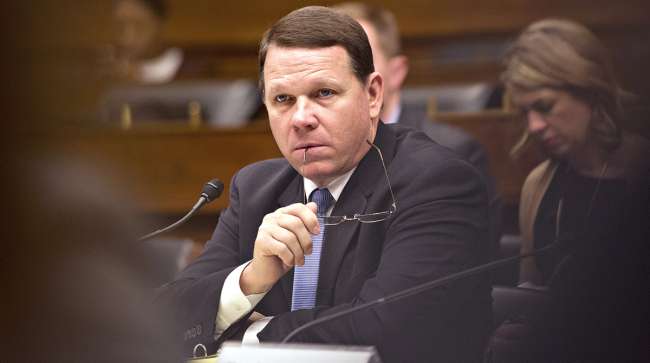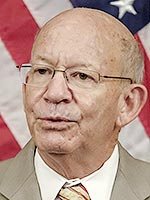Senior Reporter
House GOP Unveils $400 Billion Highway Policy Bill

[Stay on top of transportation news: Get TTNews in your inbox.]
Legislation that would authorize $400 billion over five years for surface transportation programs was unveiled by Republican policymakers in the U.S. House of Representatives May 19.
The Surface Transportation Advanced Through Reform, Technology and Efficient Review (STARTER) Act 2.0 would update a 2015 highway law that expires at the end of September.
The bill would extend or create programs related to highway funding, autonomous vehicles, the trucking workforce and autonomous technology, among other provisions.
The measure, which also aims to streamline parts of the federal environmental permitting process, comes ahead of the Democrats’ surface transportation proposal. The Democratic leadership on the House transportation panel is expected to consider their version after the Memorial Day holiday on May 31. Highway policy legislation would represent a pillar of President Joe Biden’s infrastructure agenda.
“Our bill focuses on the core infrastructure that helps move people and goods through our communities every single day, cuts red tape that holds up project construction, and gets resources into the hands of our states and locals with as few strings attached as possible,” said Transportation and Infrastructure Committee ranking member Sam Graves (R-Mo.), the bill’s chief sponsor. “As the process for considering legislation on infrastructure moves forward, I am eager to see these proposals become part of a robust bipartisan effort, just as the president continues to call for.”
Highways and Transit Subcommittee ranking member Rodney Davis (R-Ill.), a co-sponsor, added: “Streamlining the federal permitting and environmental review process absolutely must be a part of an infrastructure package.”
Specifically, the legislation would maintain an infrastructure grants program, update a national highway freight plan and require agencies to develop a single permitting timetable for environmental reviews.
For trucking, the legislation would enhance resources for states to pursue additional parking options for trucks. It would establish an apprenticeship program designed for commercial driver’s license holders between 18 to 20 to allow for interstate driving and it would standardize industry best practices for hiring carriers. The bill also would ensure flexible hours-of-service guidelines for certain farm operations and livestock haulers.
Additionally, the bill would dedicate funding for rural programs. According to a summary of the legislation, it “provides greater flexibility and supports greater mobility in rural areas by increasing the federal share of project costs for projects located in qualified opportunity zones, in medically underserved areas or areas with medically underserved populations.”
It also would establish a competitive grant program for connected vehicle applications, pave the way for a national vehicle-miles-traveled fee system, and create the Promoting Resilient Operations for Transformative, Efficient, and Cost-Saving Transportation, or PROTECT, grant program pertaining to natural disasters.
“This legislation puts true transportation infrastructure first and prioritizes building a resilient transit system,” said Rep. Rick Crawford (R-Ark.), ranking member of the Railroads, Pipelines, and Hazardous Materials Subcommittee. He is a co-sponsor.
While the Republican measure emphasizes surface transportation policies, committee Chairman Peter DeFazio has insisted his version would propose transforming the country’s mobility grid, including transit systems. The chairman indicated his five-year legislative update of the 2015 highway law would propose $100 billion to address a backlog in transit state-of-good repair criteria.

DeFazio
“America is facing serious challenges: Crumbling infrastructure, the threat of climate change, inequality and racial injustice, a rising China that threatens our domestic workforce and manufacturing,” said DeFazio May 18. “We can’t solve these problems by doing the status quo.”
Meanwhile, the White House and Republicans continue to negotiate infrastructure policy and funding parameters. The Senate GOP has unveiled a nearly $600 billion policy framework, as Democrats aim to pursue a significant higher legislative proposal. Biden’s infrastructure plan calls for $2.25 trillion by increasing the corporate tax rate.
“We believe we can find a bipartisan deal on infrastructure,” said Biden May 18 in Michigan. “But we’ve made one thing clear: We’ll compromise, but doing nothing is not an option.”
Want more news? Listen to today's daily briefing below or go here for more info:




